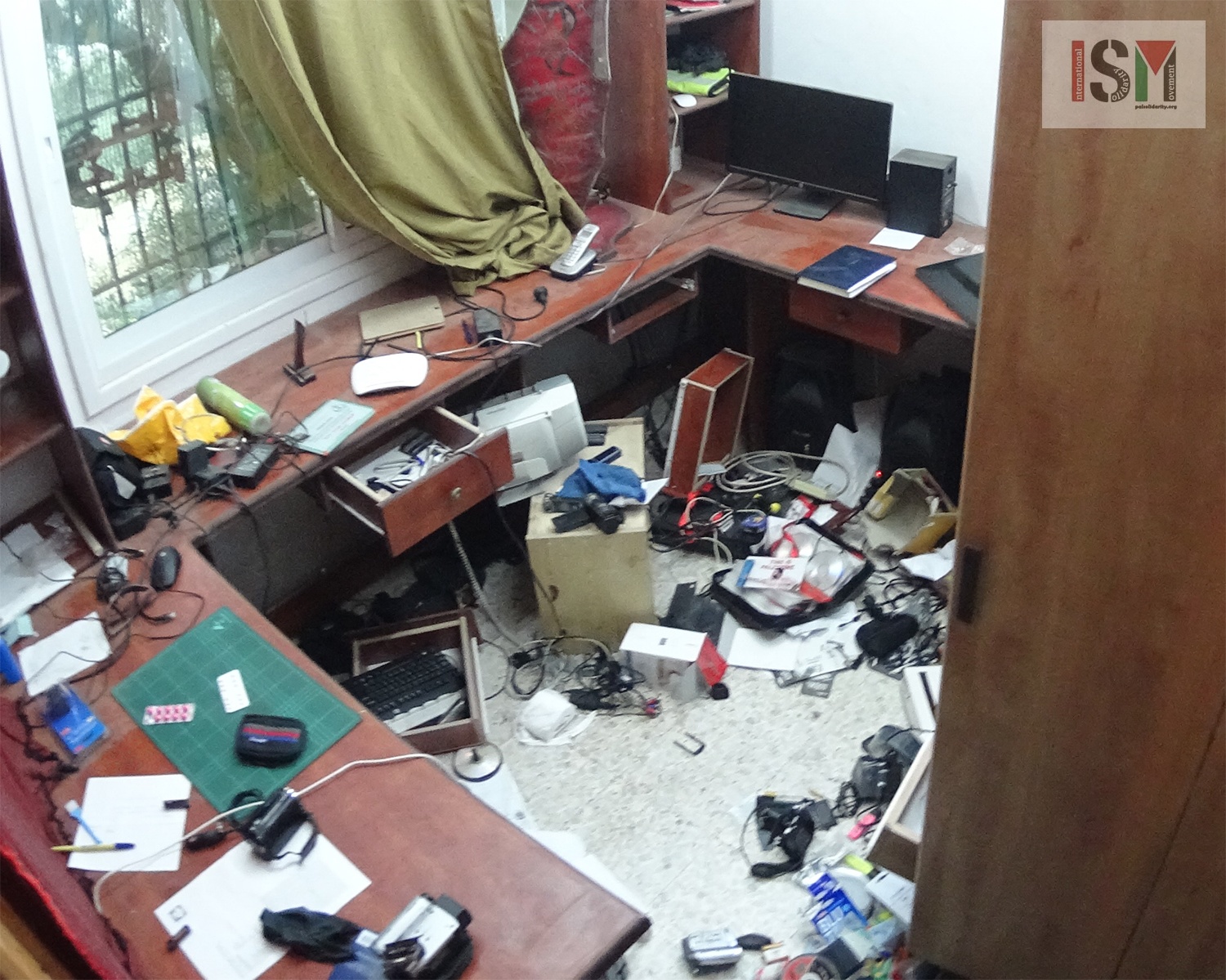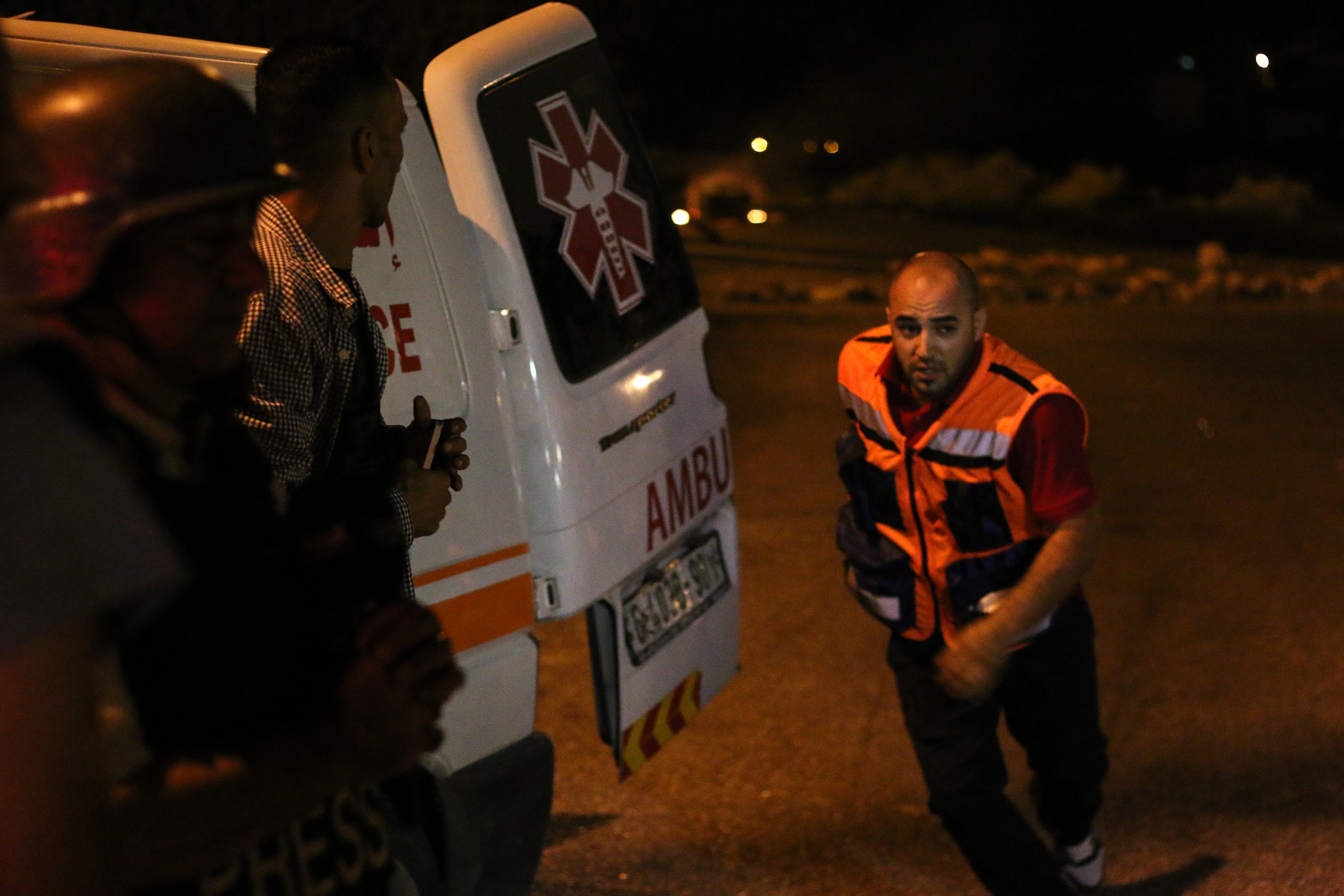-
Israeli forces detain Palestinian family in their home for 26 hours & wreak havoc on YAS center
9th November 2015 | International Solidarity Movement, Al-Khalil team | Hebron, occupied Palestine On the 7th of November, soldiers entered the home of the Haddad family from 5am and did not leave until 7am the following day. At this time, there were 8 people inside the home who were forced into one of the rooms. […]
-
First aid crews need your support to save lives!
9th November 2015 | International Solidarity Movement, Huwara Team | occupied Palestine On October 30th 2015, Israeli forces shot at one of Fadi’s ambulances which resulted in the windows of one of the ambulances being broken alongside other damages. As Israeli aggression towards Palestinians escalates during confrontations, medical aid such as that provided […]
-
URGENT ALERT: Shuhada Street, Tel Rumeida declared ‘Closed Military Zone’; human rights activists expelled; homes raided
8th November 2015 | International Solidarity Movement, Al-Khalil team | Hebron, occupied Palestine The International Solidarity Movement (ISM) urges the international community to take immediate and urgent action against the Israeli occupation forces’ recent declaration of the Tel Rumeida neighborhood and Shuhada street in downtown Hebron as a closed ‘Closed Military Zone.’ On November 1st, […]
Action Alert An Nabi Saleh Apartheid Wall Arrests BDS Bethlehem Bil'in Cast Lead Demonstration Denial of Entry Ethnic Cleansing Farmers Gaza Global Actions Hebron House Demolition International law Israeli Army Jerusalem Live Ammunition Nablus Ni'lin Prisoner Ramallah Rubber-coated steel bullets Settlement Settlers Settler violence Tear-Gas Canister Video



